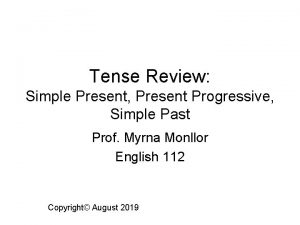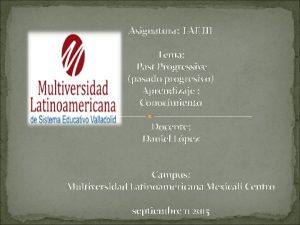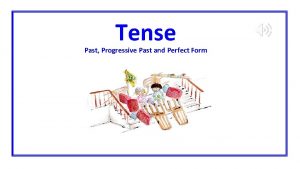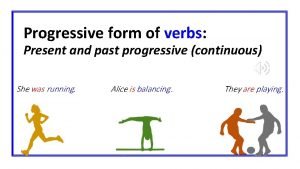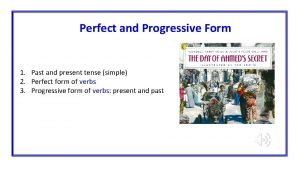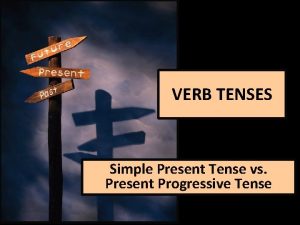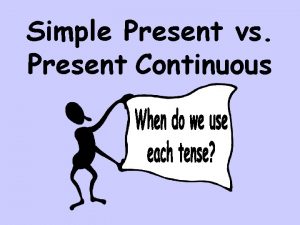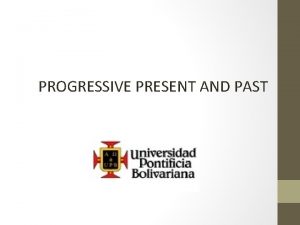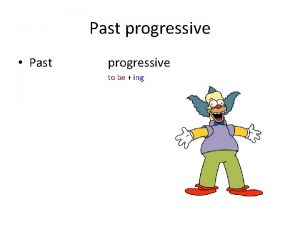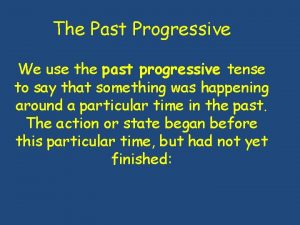HEIR PROPERTY PAST PROGRESSIVE PRESENT AND THE PROMISE































- Slides: 31

HEIR PROPERTY: PAST, PROGRESSIVE PRESENT, AND THE PROMISE OF THE FUTURE Savonala Horne Executive Director Land Loss Prevention Project November, 2019

ABOUT THE LAND LOSS PREVENTION PROJECT The Land Loss Prevention Project was founded in 1982 and incorporated in 1983 as a nonprofit law firm offering free legal assistance to financially distressed and limited-resource farmers and landowners across North Carolina. Areas of Law: � Agricultural Environmental Real Property Issues Consumer Protection Foreclosure Defense Wills/Estate Planning Civil Rights Bankruptcy as a last resort alternative to foreclosures (farms and/or homes) � Business/ Agricultural issues � � � �

THE VALUE OF LAND Land ownership = �Source of wealth creation �Ties to family �Ties to community �Status �Well-being

HEIR PROPERTY HAS BEEN APRIMARY CAUSE OF LAND LOSS According to the USDA Office of Civil Rights, heir property is the leading cause of land loss amongst Black landowners � Census Bureau showed that 80% of land owned by Black families has been lost since 1910 due to heir property https: //www. centerforsocialinclusion. org/wpcontent/uploads/2014/07/Regaining-Ground-Cultivating. Community-Assets-and-Preserving-Black-Land. pdf � https: //nonprofitquarterly. org/preserving-black-owned-landwhy-new-policies-are-needed/ �

WHAT IS HEIR PROPERTY? When an individual passes away without leaving a will that clarifies their wishes as to the distribution of property, N. C. law mandates how property (real and personal) is passed to family members. 5

EXAMPLE Spouse A Spouse B 1 child 1/2 to living spouse, 1/2 to living child Spouse A Spouse B 2 or more children, or child and surviving grandchildren 1/3 to spouse, 2/3 shared among children and/or lineal descendants of deceased child * Formulas are only correct with no income limits when applied intestate real estate. 6

WHAT IS HEIR PROPERTY? � Remaining heirs share ownership of a single parcel of land Ownership becomes fractionated and difficult to manage Issues that impact shares of ownership: Some owners have wills, and some do not. Divorces Dates of death affect shares of ownership

WHAT IS HEIR PROPERTY – RIGHTS AND RESPONSIBILITIES Heir property owners own an undivided interest in the entire property. Rights of Heir Property Owners � � � Can use and enjoy the entire property Can convey their interest in the property Cannot give away the property interest of the other owners Responsibilities of Heir Property Owners � Same basic responsibilities as any other landowner Keep unwanted people off of the land Basic repair and upkeep of the property � � Must pay property taxes Must split any rent or profit gaining from using the land

OUR “PAST” WITH HEIR PROPERTY= LOSS OF LAND Difficult to keep track of all the owners Scattered family members/co-owners with varying levels of attachment to the land Owners may not know they own any land Owners may not care about the land may not help pay property taxes or maintain the land Different owners may have different visions for the land

RISKS CREATED WITH HEIR PROPERTY TAXES All landowners must pay property taxes on their land. • Heir property owners have to pay special attention to guarantee/coordinate payments. • Taxpayers must pay taxes between September 1 and January 6 of every year. • If not paid, tax liens are advertised beginning around March of each year. The county/town has statutory power to foreclose based on non-payment. 10

RISKS CREATED WITH HEIR PROPERTY – PARTITIONS o When several people own one piece of land, any one of the owners can ask the court to partition the land. Two Types of Partition Actions: Partition in kind is the physical division of land among cotenants. 1. • • The land will be divided based on each cotenant’s ownership share. If the land cannot be divided equally, some owners may have to pay money to the other owners to make the division fair. A partition sale is when the land is sold, typically at public auction. 2. • • Only allowed if there is a preponderance of evidence that the land cannot be divided fairly. The cost of the sale will be taken out of the money made at auction and the rest will be divided between the cotenants.

RISKS CREATED WITH HEIR PROPERTY – MORTGAGE FORECLOSURES Mortgage companies are typically less willing to work with several property owners to remortgage property. There are federal protections for a person inheriting land encumbered by a mortgage, but it may require probate

OUR MORE “PROGRESSIVEPRESENT”: INCREASING ATTENTION TO HEIR PROPERTY= INCREASED CONTROL AND INPUT Heir property is no longer a hidden problem Stigma around estate planning is lessening with access to trusted community resources More attention placed on connection to land can build increased communication on goals � https: //features. propublica. org/black-land-loss/heirs- property-rights-why-black-families-lose-land-south/ � https: //www. theatlantic. com/magazine/archive/2019/09/t his-land-was-our-land/594742/

The Uniform Law Commission • The Uniform Law Commission is a non-profit organization formed in 1892 to draft uniform state laws • Funded mainly by state dues, with some additional income from publishing royalties and grants • 360+ Volunteer Attorney-Commissioners are appointed from all 50 states, the District of Columbia, Puerto Rico, and the U. S. Virgin Islands • Commissioners are unpaid; expenses for ULC projects are reimbursed • Supported by a staff of 15 at our office in Chicago

Our Drafting Process • Write laws based on sound public policy • Uniform acts are drafted by committees of attorneys from diverse legal backgrounds and geographic areas • ABA appoints advisors to each drafting committee • Committees meet in public with all stakeholders invited to fully participate • Minimum 2 -year drafting process; final acts are approved by a vote of the states at the ULC annual meeting each summer • Follow the work of any committee on www. uniformlaws. org

Uniform Partition of Heirs Property Act (UPHPA) • Approved by the ULC in summer 2010 • Reporter: Prof. Thomas Mitchell, Texas A&M Law • Adopted so far in 13 states and the U. S. V. I. • Heirs Property Retention Coalition is a group of advocates who participated in drafting the uniform act and work to promote UPHPA in state legislatures • ULC will also provide legislative support for enactment in your state • Complete information is available for download from the ULC website


What is Heirs Property? • Usually results from intestate succession • More common with low- and middle-income landowners without an estate plan • State law makes heirs of real estate “tenants-incommon” – they each own a share of the whole • Legal rules are counterintuitive: one person can force an entire family to sell its inherited land • Most at risk: property in the zone of development or in gentrifying neighborhoods

Problems with Heirs Property • Unsecure ownership – Heirs are vulnerable to forced partition sale and loss of real estate wealth • Property can quickly become fractionated – owned by many relatives • Unclear responsibilities for taxes, upkeep, etc. • 100% of owners must agree on some important matters • No clear title means ineligible for a federal farm number and access to farm development loans – until now.

How Does the UPHPA Help? Five simple reforms give due process to heirs: 1. Enhanced notice when partition action is filed 2. Independent appraisal of value 3. Right of first refusal for cotenants to buyout at the pro-rated appraised value any cotenant who requests a partition sale 4. If partitioned, a strong preference for partition-inkind 5. If sold, an open-market sale is required unless the court finds another method of sale will yield a higher price.

1. Enhanced Notice • In addition to sending notice of filing of a partition action to all known heirs who are locatable, the plaintiff shall post a conspicuous sign on the heirs property. • The sign must state that an action for partition has commenced and list the name and address of the court. • The court may require the plaintiff to publish on the sign the name of the plaintiff and of any known cotenants.

2. Independent Appraisal • Unless the parties agree on the value of the property, the court must appoint a disinterested, licensed real estate appraiser to determine the value of the property. • The appraiser is required to appraise the property assuming sole ownership of the fee simple estate, and may not apply discounts for potential partition. • All parties receive a copy of the appraisal and notice of an opportunity to object and offer other evidence of the property’s value. Court then determines value. • Exception: No appraisal required if the court determines the cost outweighs the evidentiary value.

3. Right of First Refusal • Any cotenant who does not request a partition sale may purchase the share of the cotenants who petitioned the court for a sale. • The purchase price is the court-determined value of the property multiplied by the fractional share of the requesting cotenant’s ownership. • If two or more cotenants want to purchase the property, the court will divide the seller’s interest between the buyers according to their existing ownership shares. • Ensures selling contents receive fair value for their inheritance.

4. Partition-in-Kind Preferred • Although most state partition statutes already contain a preference for partition in kind, courts are quick to order a sale when partition is difficult or when the property must be divided into small shares. • The UPHPA requires a court to consider noneconomic factors: • Collective duration of ownership • Lawful use • Sentimental attachment to ancestral land

5. Open-Market Sale • If the property is to be sold, it must be listed with a licensed real estate broker for sale at a price no lower than the court-determined value for a reasonable time. • If the property does not sell within a reasonable time, the court may, after a hearing: • Approve the highest offer; • Continue to offer the property at a lower price; • Order the property to be sold at auction or by sealed bids. • Court may waive the open-market sale procedure only if another method will produce a better price.

MOVING FORWARD: 2018 FARM BILL INCLUDED HEIR PROPERTY PROTECTIONS Requires the USDA to provide a farm number and allow access to programs for heir owners (representing at least 50% of the interests) for states that have enacted the Uniform Partition of Heirs Property statute � Requires the Secretary to identify similar alternative forms of documentation in each state as evidence of control of the land, including self-certification, and require FSA and NRCS in each state to accept the same forms of documentation � Provides authority for a pilot project for up to $10 million annually in the Credit Title for FSA to make loans available through qualified intermediaries for revolving loan funds to work with heirs to allow owners to resolve heirs property ownership on farmland that has multiple owners � Provides authority to the Secretary to collect data and perform analysis on trends in farmland ownership and operation and transitions of farms and ranches to new generation of owners and operators, and also to acknowledge the number of farmers operating on land with undivided interests and how unresolved land tenure issues impact the ability of producers to access USDA benefits needed to operate farms and pass them on to new generations of owners �

IMPORTANT ADVANCES IN THE 2018 FARM BILL (PROGRAM AND CREDIT ACCESS) Requires USDA to provide a farm number and program eligibility to farm owners and operators farming on land that has an assigned administrative authority representing more that 50% of the interests in the property in states who have in force a Uniform Partition of Heirs Property statute � Requires the Secretary to identify similar alternative forms of documentation in each state as evidence of control of the land, including self-certification, and require FSA and NRCS in each state to accept the same forms of documentation � Provides authority for a pilot project for up to $10 million annually in the Credit Title for FSA to make loans available through qualified intermediaries for revolving loan funds to work with heirs to allow owners to resolve heirs property ownership on farmland that has multiple owners � Provides authority to the Secretary to collect data and perform analysis on trends in farmland ownership and operation and transitions of farms and ranches to new generation of owners and operators, and also to acknowledge the number of farmers operating on land with undivided interests and how unresolved land tenure issues impact the ability of producers to access USDA benefits needed to operate farms and pass them on to new generations of owners �

IMPORTANT ADVANCES IN THE 2018 FARM BILL Fair Access for Farmers and Ranchers Act adds “heirs property” language to the statute that will ensure more farmers – especially African American farmers and farmers of color operating on land with undivided interests can now secure farm numbers and access USDA programs that enable them to protect the soil and water, continue to operate viable farms that feed their communities, and pass farming vocation and farmland on to future generations � Addition of the Fair Access for Farmers and Ranchers Act will provide a critical incentive to more states to adopt the Uniform Heirs Property Partition Act � drafted and approved by the Uniform Law Commission (with initial language Rural Coalition with its members including LLPP) establishes a number of important protections for owners of heirs’ property: improved notification practices, broader judicial consideration - courts, for example, would consider how long a family has owned the land whether that family would be rendered homeless if it were sold - and the establishment of priorities for buy-out by family members of the interest of the individual requesting sale and physical division of the land before a forced sale would be permitted

THANK YOU! Savonala Horne Land Loss Prevention Project 919 -682 -5969 1 -800 -672 -5839 PO Box 179 Durham, NC 27702 www. landloss. org 29

For more info on enacting the UPHPA in your state: Benjamin Orzeske Uniform Law Commission 111 N Wabash Avenue, Suite 1010 Chicago, Illinois 60602 (312) 450 -6621 - direct borzeske@uniformlaws. org

Thank You!
 Past perfect progressive use
Past perfect progressive use Affirmative past progressive
Affirmative past progressive Present progressive pasive
Present progressive pasive Dispensasjonsveileder
Dispensasjonsveileder Present past progressive tense
Present past progressive tense Past simple remember
Past simple remember Present perfect vs present perfect progressive
Present perfect vs present perfect progressive Simple past simple continuous
Simple past simple continuous Present progressive review
Present progressive review Present simple present progressive past simple
Present simple present progressive past simple Present simple present progressive past simple
Present simple present progressive past simple Relative clause noredink
Relative clause noredink Past present continuous tense
Past present continuous tense Past progressive and past continuous
Past progressive and past continuous Past progressive perfect
Past progressive perfect Past progressive
Past progressive Simple and progressive forms
Simple and progressive forms Past progressive
Past progressive Past passive progressive
Past passive progressive Past simple
Past simple Past continuous past perfect
Past continuous past perfect Simple present tense and present progressive
Simple present tense and present progressive Simple present and present progressive tense
Simple present and present progressive tense Grammar quiz present simple
Grammar quiz present simple Progressive tenses of verbs
Progressive tenses of verbs Present continuous tense用法
Present continuous tense用法 Simple present tense of remember
Simple present tense of remember Present continuous key words
Present continuous key words Present progressive es lo mismo que present continuous
Present progressive es lo mismo que present continuous Present perfect passive
Present perfect passive выбери present simple или present progressive
выбери present simple или present progressive Present continuous statement
Present continuous statement








